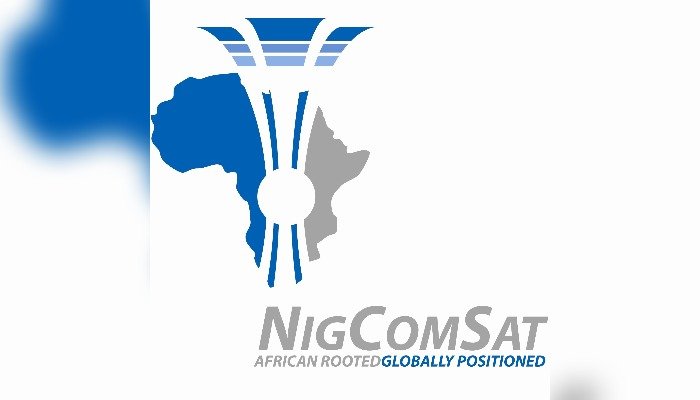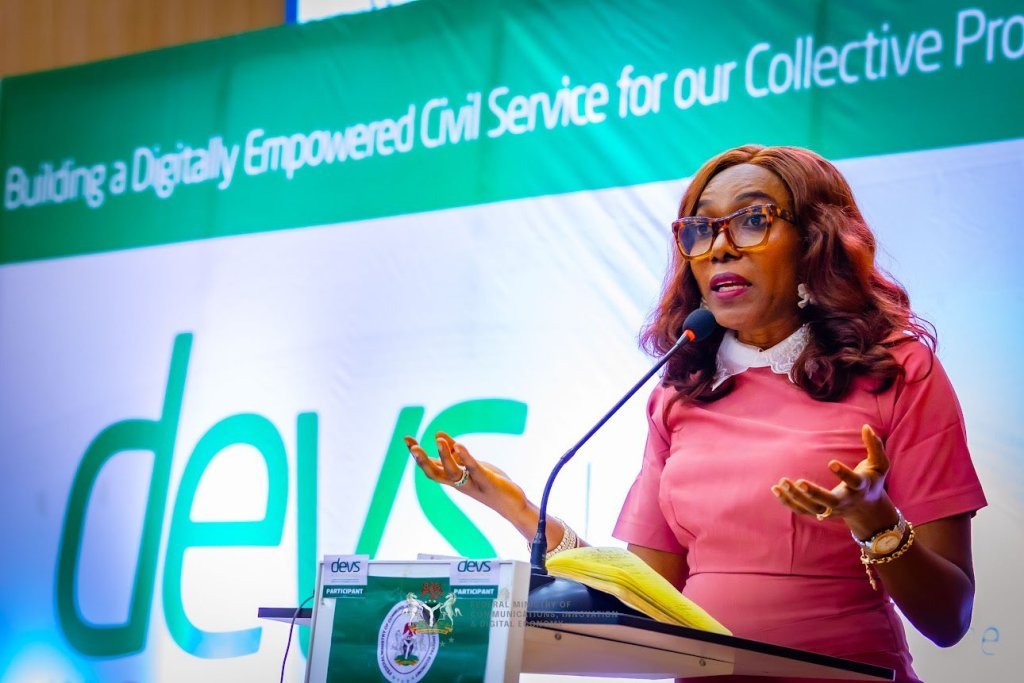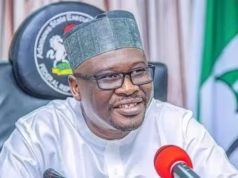In Lagos recently, the Managing Director of NIGCOMSAT, Mrs Jane Egerton-Idehen, laid out a bold ambition — for Nigeria’s satellite communications utility to generate ₦8 billion in revenue over the next three years. This target, she explained, will be met not by going it alone, but by forging closer ties with private sector partners to help commercialise a largely untapped asset: broadband capacity.
Table of Contents

A Wealth of Idle Potential—Just Waiting for Activation
It may come as a surprise that 93 per cent of NIGCOMSAT’s broadband capacity remains unused, even as it stands as the firm’s most lucrative offering. Only about 7 per cent of its satellite broadband service is currently in active use.
Egerton-Idehen noted that usage of broadband across Nigeria has improved—citing a rise from 35 per cent in 2023 to 75 per cent—but satellite-connected services are still largely under-leveraged. She emphasised that this vast reserve, if properly mobilised, could serve critical sectors like healthcare, education, defence, fintech and government operations.
A shining example of NIGCOMSAT’s delivery capability is Project 774, which within just two months connected 45 local government secretariats across eight states—something traditional fibre operators couldn’t manage as quickly.
Private Partners: The Gateway to Market Reach
With a workforce of just 250 staff, NIGCOMSAT recognises it lacks the manpower to serve the entire Nigerian market directly. That’s why Egerton-Idehen highlighted channel partnerships and reseller networks as central to the strategy: NIGCOMSAT will supply the backbone infrastructure, while private allies push solutions to schools, clinics, fintech firms, ministries—all across the country and beyond.
Mrs Egerton-Idehen urged stakeholders: “We are not set up to compete directly with consumer operators because we don’t have engineers in every state to do installations and support. But by collaborating with partners, we can reach underserved areas across Nigeria—and even into West Africa.”

Learning from Top-Tier State Enterprises
To reassure and motivate partners, the MD drew comparisons with other successful government-owned entities. She referenced Egypt’s NALSAT, which clocks in around US-$150 million in annual revenue, alongside Nigeria LNG, both of which exemplify how state-run firms can be both impactful and profitable.
Against that backdrop, NIGCOMSAT’s ₦8 billion goal—which she noted equates to roughly US-$3-4 million—is modest indeed. “If we focus and work with the right partners, this target is not ambitious at all,” she said.
To sweeten the deal, she assured that the agency would support partners with technical assistance, co-branded marketing, and a flexible engagement model, emphasising that the next chapter of NIGCOMSAT’s journey must be co-written with private sector collaborators.
Addressing Perception and Competition Head-On
Despite its assets, NIGCOMSAT is still widely viewed as part of the government machinery rather than a commercial player—something that stakeholders say hinders market traction.
Adding to the competitive pressure, international satellite broadband providers—chief among them Starlink—are already winning market share in Nigeria.
To overcome this, several participants at the stakeholder event urged the federal government to create policy frameworks that prioritise NIGCOMSAT services for ministries and parastatals, effectively steering public sector contracts toward home-grown infrastructure.
Egerton-Idehen’s response was clear: “This is the next chapter for NIGCOMSAT. We want to build it with you, our partners, because we cannot do it alone.”

Conclusion
NIGCOMSAT’s plan to harness dormant satellite broadband resources through strategic private partnerships is a promising pivot and a timely one. With just 7 per cent utilisation, the opportunity is clear: together, both public and private sectors can connect schools, health facilities, agencies, and remote communities—even naval operations—to vital digital lifelines.
If executed well, those ₦8 billion in projected revenue over the next three years would not just be a fiscal milestone—it would mark the launch of NIGCOMSAT as a truly competitive, commercially savvy pillar of Nigeria’s digital infrastructure ecosystem.
Join Our Social Media Channels:
WhatsApp: NaijaEyes
Facebook: NaijaEyes
Twitter: NaijaEyes
Instagram: NaijaEyes
TikTok: NaijaEyes





